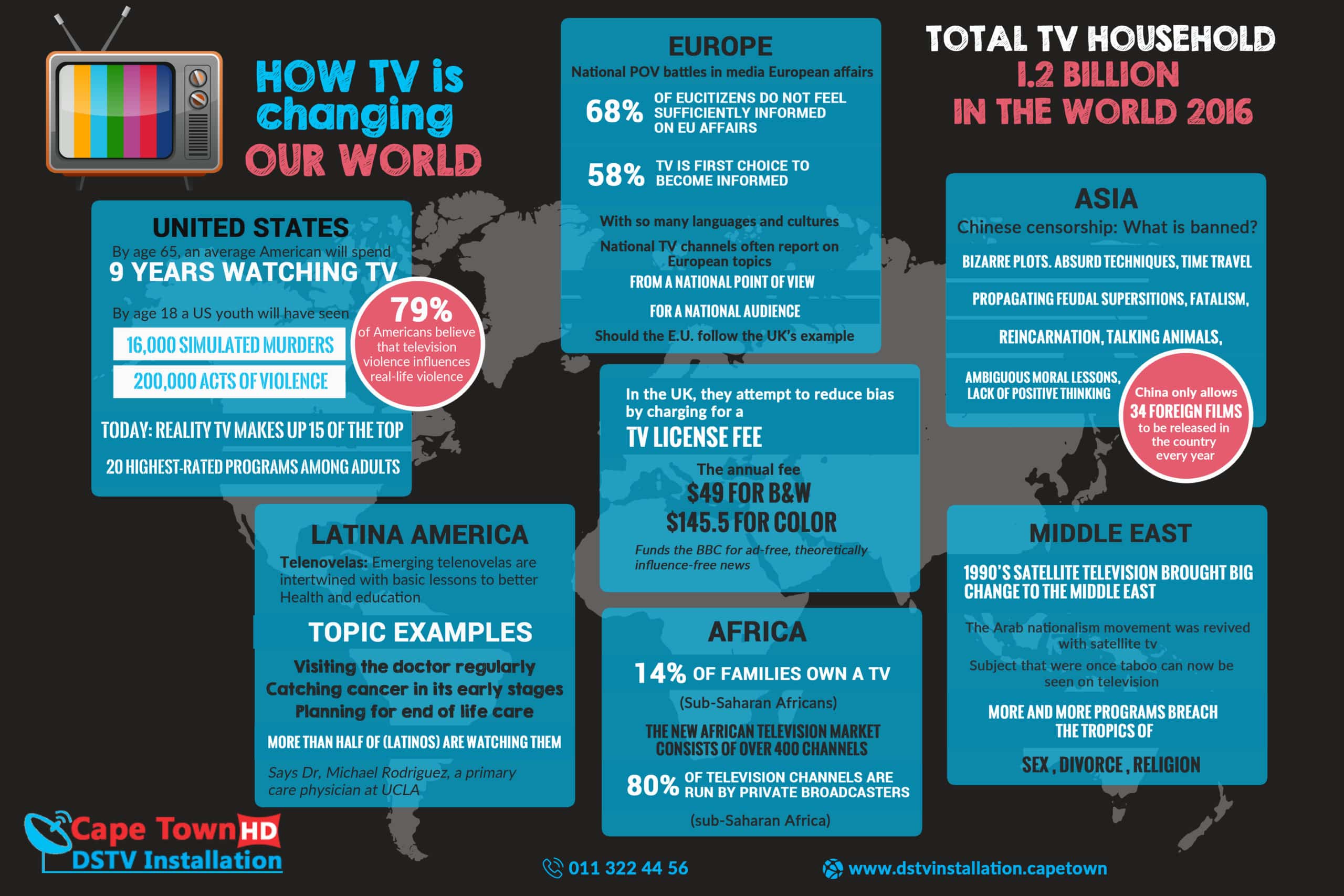The introduction of television in the world has brought about many changes to the world as we know it. By 2016, about 1.2 billion people in the world owned television sets in their households. However, despite its popularity TV programs are surrounded by a lot of controversy in almost all parts of the world.
In the United States for instance, by the time a person reaches the age of 65, they will have spent 9 years of their lives watching television. It is also estimated that by the time a child is 18, they will have seen 16,000 simulated murders and 200, 000 acts of violence since most people here like reality TV. The point of concern here is that the violence that is depicted in these programs may influence the thoughts and the actions of the viewers; out of 100, 79 Americans believe that this is true.
In Latin America, TV programs are believed to have more positive influence over the people viewing them. Telenovelas especially are an all-time favorite with the locals as more than half of the population watches them. These telenovelas have useful life lessons that viewers can learn and in the process change some of their negative perceptions to positive ones in topics such as education, and health.
Looking at Asian countries such as China, most programs with controversial themes are usually banned from being aired. An example is a program with animals talking, bizarre plots, etc. The government has even gone further to limit foreign films released yearly in the country to 34. On the other hand, in the Middle East, where culture and religion influences a large part of the residents’ life, there are strict laws governing programs being aired. Sex, divorce, and religion are some of the topics that have a lot of regulations. However, the introduction of satellite TV in the continent back in the 1990s changed things around. Today, people from this part of the world are likely to watch programs that were previously banned.
In sub-Saharan Africa, 14% of the people have access to TVs at home. Those who do can access more than 400 TV channels out of which 80% are run by private broadcasters. In Europe, residents have conflicting views about what gets aired in the continent; 68% of the population believes that the aired programs do not focus on European affairs. Moreover, more than half of the people believe that the major role of TV should be to get people informed. Despite these concerns, the national TV makes deliberate attempts to air common European topics despite the diversity among the people regarding language and culture.
Despite all these, it is clear that TV positively affects the world especially, since the introduction of satellite TV. Despite the part of the world, you are in, you can choose from hundreds of informative and fun TV programs. If you are thinking of installing, upgrading or repairing your satellite TV, you should only hire qualified experts. Our DSTV installation team in Cape Town is made up of qualified professionals who will handle your DSTV installation issues at affordable prices. Call us on 087 551 0828 or visit our website at https://www.dstvinstallation.capetown/ and access quality services.


